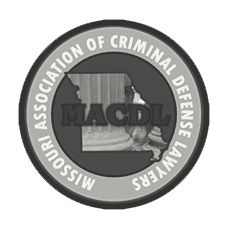
Many good people facing a home foreclosure wonder if they will ever be able to purchase a home again, or if they will be able to find a place to rent after foreclosure. The good news is that foreclosures do not carry the stigma they once did. You can get a loan again. Most everyone knows a friend or family member who has been affected by the housing crisis. If you are facing foreclosure, the sooner you accept and confront the problem the better of you will be.
You may be able to avoid foreclosure through a loan modification or a short sale. In a loan modification, the bank modifies the terms of your loan to make the payments more affordable. In the case of a short sale, the bank agrees to sell the house for less than what you owe. In some cases, the bank agrees to forgive the difference or the loss. In other cases, the bank files a lawsuit to collect the difference and seeks a “deficiency judgment”. Chapter 13 bankruptcy can allow you to catch up a past due mortgage even when the bank refuses to work with you.
Chapter 7 bankruptcy often follows a foreclosure. Chapter 7 bankruptcy allows you to discharge the debt obligation to the bank and move on with your life. Typically, if you manage your credit well you can become eligible for a home loan two years after a bankruptcy or three years after a foreclosure.
Most people can find a place to rent following a foreclosure without too much difficulty. If a potential lawsuit from your bank is still looming, landlords may treat you with caution. Both lenders and landlords dislike uncertainty. The certainty that comes from knowing your debts were discharged in bankruptcy is often better in the eyes of a lender than old unpaid debts and obligations.
Learn more about buying a home after foreclosure here: http://homeguides.sfgate.com/mortgage-after-bankruptcy-foreclosure-2516.html
You may be able to avoid foreclosure through a loan modification or a short sale. In a loan modification, the bank modifies the terms of your loan to make the payments more affordable. In the case of a short sale, the bank agrees to sell the house for less than what you owe. In some cases, the bank agrees to forgive the difference or the loss. In other cases, the bank files a lawsuit to collect the difference and seeks a “deficiency judgment”. Chapter 13 bankruptcy can allow you to catch up a past due mortgage even when the bank refuses to work with you.
Chapter 7 bankruptcy often follows a foreclosure. Chapter 7 bankruptcy allows you to discharge the debt obligation to the bank and move on with your life. Typically, if you manage your credit well you can become eligible for a home loan two years after a bankruptcy or three years after a foreclosure.
Most people can find a place to rent following a foreclosure without too much difficulty. If a potential lawsuit from your bank is still looming, landlords may treat you with caution. Both lenders and landlords dislike uncertainty. The certainty that comes from knowing your debts were discharged in bankruptcy is often better in the eyes of a lender than old unpaid debts and obligations.
Learn more about buying a home after foreclosure here: http://homeguides.sfgate.com/mortgage-after-bankruptcy-foreclosure-2516.html
Award winning
law firm
120 S Central Ave #1550
St. Louis MO 63105








